Posted on April 28, 2014
Morality vs Ethics: FIGHT!
 Facebook, always the great facilitator of respectful dialog between dissenting parties (in much the same way that Alexander dealt with the Gordian Knot, in that it usually devolves into trying to verbally slice each other into tiny pieces with word swords), has recently been abuzz with news about a transgender substitute teacher in my area being suspended from Lumberton ISD because of reasons involving her having a pee-pee where her hoo-hoo should be. (This is how people talk in the South. Just roll with it.)
Facebook, always the great facilitator of respectful dialog between dissenting parties (in much the same way that Alexander dealt with the Gordian Knot, in that it usually devolves into trying to verbally slice each other into tiny pieces with word swords), has recently been abuzz with news about a transgender substitute teacher in my area being suspended from Lumberton ISD because of reasons involving her having a pee-pee where her hoo-hoo should be. (This is how people talk in the South. Just roll with it.)
As these things tend to go, there has been a lot of moral outrage about this from people who cling to things like morals. From other people, who deal with life through reason and logic, it was no big deal. Until people started talking about it on Facebook, of course, at which point everything becomes a divisive issue where People Take A Stand.
For what it’s worth, I have no use for morality, and consider it nothing more than a malignant tumor upon the freedom of man. Morality, to my way of thinking, is tricky because it is typically handed down by supernatural authority, and what laws you follow for whichever deity you obey depends mostly upon where and when you were born. The problem with basing law on morality is that it’s such a mercurial thing, shifting wildly from one culture to the next, depending on the teachings of their respective religious convictions. Come screaming into the world in the middle of Afghanistan, and you’re probably going to be a Muslim. But get your baby butt slapped by an obstetrician in the middle of a Nebraskan hospital, and you’re probably going to be a Christian. Either way, I don’t want the crazy chocolate of your religious morality mixing with my delicious ethical peanut butter, no matter how tasty it might sound. Because it always goes badly.
It’s why we have separation of Church and State in America. Secular laws based on pragmatic reality are what guarantee the freedoms we all enjoy: freedom to worship whatever God we choose, in whatever way we want, freedom to not worship, freedom to piss people off and freedom to win people over. Freedom is messy and dangerous and offensive. But it’s important.
Being tolerant of people you disagree with is extremely important in a free society, as long as they’re not hurting anyone, because the very nature of freedom means people will disagree with you, they will say and do things you find objectionable, and they might even be in positions of authority to enact legislation that you find morally repugnant. But without tolerating their right to exist and to be as vocal or authoritative as people with whom you agree, then you cease to live in a free society and are heading in a direction where lay burqas and all the religious intolerance you want. It might not be your particular brand of religious intolerance, but it’s the other side of the coin. And I’ll have no part of it.
Ethics, on the other hand, are derived from the practical application of pragmatic reality, and so tend to be more tolerant and accepting of differences because they neither value nor condemn one’s own personal morality. They’re secular because secularism in law is what allows the concept of freedom to exist, and freedom is something America places quite a lot of value on. Or at least it pretends to. Especially around the 4th of July. Fireworks are involved and everything. It’s a whole deal.
 Anyway, with all this in mind, I tend to shun morality and form my basis for judgment on how to live from simple ethics: Live free, and don’t be a dick. (Ok, so I borrowed that last bit from the Church Of Wheaton. It’s non-denominational and the sacrificial altar is covered with 20-sided dice though, so everything’s cool. Don’t worry about it.) This approach can also be defined as Ethical Hedonism, which is probably the best basis for a free society, in that it encourages individuals to pursue their own happiness, but only while observing certain standards of conduct when their own freedom might encroach upon someone else’s.
Anyway, with all this in mind, I tend to shun morality and form my basis for judgment on how to live from simple ethics: Live free, and don’t be a dick. (Ok, so I borrowed that last bit from the Church Of Wheaton. It’s non-denominational and the sacrificial altar is covered with 20-sided dice though, so everything’s cool. Don’t worry about it.) This approach can also be defined as Ethical Hedonism, which is probably the best basis for a free society, in that it encourages individuals to pursue their own happiness, but only while observing certain standards of conduct when their own freedom might encroach upon someone else’s.
Here’s what video game designer, collector, private astronaut and all around groovy dude Richard Garriott had to say on the subject, way back in the Year of the Rabbit, Nineteen Hundred And Ninety Nine (reprinted with permission):
Hedonism:
Life is to be lived to the fullest. Who does not hope that at their own end, they can smile knowing that they have enjoyed the journey. To each, enjoyed will be different. Some will want to have achieved greatness. Others will want to have left this world better than when they arrived. Some will just want to sit back and enjoy what life brings them.If one lived alone on an otherwise lifeless deserted planet, one would feel free to do whatever one wished to pursue one’s own happiness. If you wanted to poison all the waters or chop off your own arm, whatever made you happy should be okay. A life of unbridled Hedonism would be yours. It would be a lonely Hedonistic life, but it would be yours to do with as you and only you choose to make it.
Ethics:
Most people choose to live in the company of other people. We gather together in communities for many reasons. A community of people has many social, survival and economic advantages. If we want these advantages, we must restrict our Hedonism and avoid doing things that would otherwise make others push us out of their community. We must not interfere with others’ basic rights to pursue their own Hedonism.Thus while living alone, we could have poisoned the worlds waters, living among the masses that we do, we must refrain from this type of activity. I will call these restraints Ethics. I will define Ethics to be logically derived restrictions on Hedonism. I will avoid the term Morals as it is often used to describe rules of conduct derived in other ways, for example because a deity has said so.
The short version (of that already short version of another, longer piece that Richard wrote independent of its inclusion in Ultima IX) is that ethical hedonism is what thinking people should aspire to. It’s a worldview based on logic and reason, rather than outmoded religious dogma handed down for thousands of years until we just start ignoring most of it, anyway. (Unless a lot of unreported stonings are still going on in America. Outside of Oklahoma, I mean. That place is whack.)
So that’s where I stand, which naturally puts me on the side of the teacher in this particular social media Crusade. As you can imagine, this also puts me in the minority of my local friends, who all tend to be infected with Southern Southernness, which is a valid medical condition recognized mostly by Northern doctors.
Where my friends and I will never agree is on there being some universal concept of right and wrong, of the inherent value of things, of objective truth in all things. I disagree with the ever popular C. S. Lewis in this regard, as one’s perception of reality is entirely subjective. Charles Addams wrote, “Normal is an illusion. What is normal for the spider is chaos for the fly.” – He was right.
 Let’s jump to the apocalypse for a minute, since it’s always an exciting topic for people on both sides of the religion fence. There’s one family, and they’re out of food. Then there’s the “evil” family that has been pillaging the neighborhood and is hoarding supplies. Family A’s kid will die if he doesn’t eat soon, but Family B’s not giving up their Vienna Sausages any time soon. So where’s the objective value now? Who is right, and who is wrong? The family that has scraped together enough food to see them through the winter, or the family that will starve if they don’t raid the other family’s camp and steal their Spam?
Let’s jump to the apocalypse for a minute, since it’s always an exciting topic for people on both sides of the religion fence. There’s one family, and they’re out of food. Then there’s the “evil” family that has been pillaging the neighborhood and is hoarding supplies. Family A’s kid will die if he doesn’t eat soon, but Family B’s not giving up their Vienna Sausages any time soon. So where’s the objective value now? Who is right, and who is wrong? The family that has scraped together enough food to see them through the winter, or the family that will starve if they don’t raid the other family’s camp and steal their Spam?
Or, less dramatically, where’s the objective truth in beauty? Sure, a culture as a whole can determine an objective standard of beauty, but the fact that those standards vary widely from culture to culture and through time says that the concept of beauty is entirely subjective, and any objective determinations we make depend entirely on having grown up in our specific environments.
Pink used to be a boy’s color, now it’s a girl’s. Pants used to be for men, now women can wear them, too. Voluptuous bodies used to be beautiful, now they have a weight problem. Tattoos are taboo, except in cultures where they’re essential to one’s identity. Alcohol is the devil’s drink, except that Jesus drank wine. Eating shellfish used to be how the devil got inside you, now we have Red Lobster. Things change. There is no objective truth in the universe outside of what you impose on upon it. End of story.
 Hardline religious folks like to say that Humanism leads to “survival of the fittest”, and often point to eugenics and Nazi Germany because of course they do. They cite the relativism of morality as the chief reason that the world is crappy, but Humanists don’t adopt relativism in a laissez-faire attitude toward what’s right and wrong. Rather, they simply acknowledge the relativism inherent in morality itself, and choose to eschew it. Humanists believe mankind itself is the best Lawgiver, and so they have no need of stone tablets and Charlton Heston. They don’t use circular logic to say that something is right or wrong simply because, “The Bible says so, and what it says in the Bible is true because it’s in the Bible.” Religious people feel that humanity is incapable of being good and decent and kind, without the imposition of morality by a higher power.
Hardline religious folks like to say that Humanism leads to “survival of the fittest”, and often point to eugenics and Nazi Germany because of course they do. They cite the relativism of morality as the chief reason that the world is crappy, but Humanists don’t adopt relativism in a laissez-faire attitude toward what’s right and wrong. Rather, they simply acknowledge the relativism inherent in morality itself, and choose to eschew it. Humanists believe mankind itself is the best Lawgiver, and so they have no need of stone tablets and Charlton Heston. They don’t use circular logic to say that something is right or wrong simply because, “The Bible says so, and what it says in the Bible is true because it’s in the Bible.” Religious people feel that humanity is incapable of being good and decent and kind, without the imposition of morality by a higher power.
Which, of course, is just bunk. I tried to think of a nicer way to phrase that, but that’s the best I could come up with. It’s just nonsense. In reality, Humanists are often kinder, more decent and basically gooder (that’s a word; don’t bother looking it up) than a lot of their more religious counterparts. Humanists don’t believe in a grand reward or terrible punishment in an afterlife, or if they do believe in it, they often just don’t care. They believe that all that matters is what we do here and now, not what comes afterwards.
There’s a great quote from Angel that I like to trot out from time to time whenever this subject comes up, so I’ll end this little tarradiddle with it (because it shows that secular humanists do good for the purpose of making the world a better place in the here and now, not out of fear of divine retribution if they don’t, or out of hope for life everlasting if they do, but simply because they do good for goodness’ sake): “If there’s no great glorious end to all this, if nothing we do matters…, then all that matters is what we do. ‘Cause that’s all there is. What we do. Now. Today.”

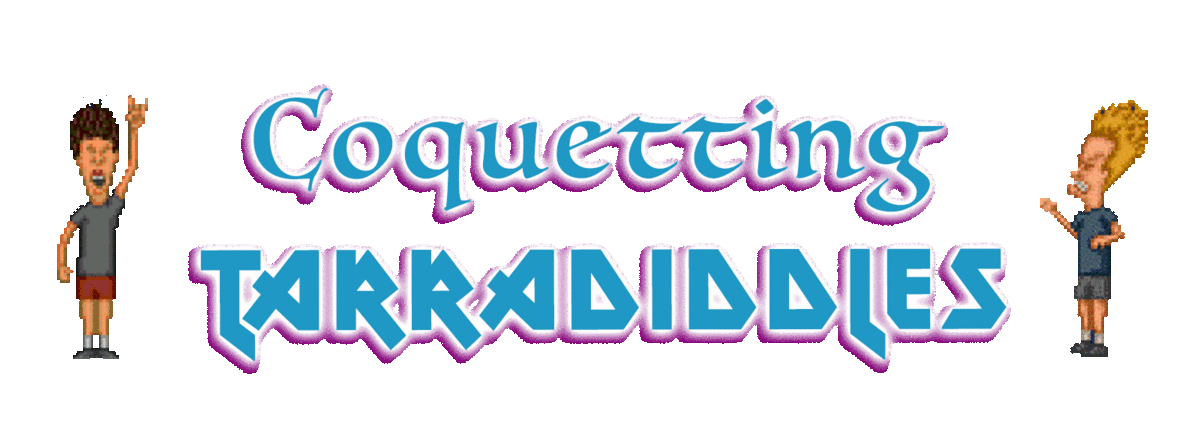

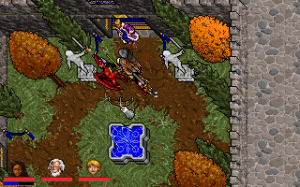
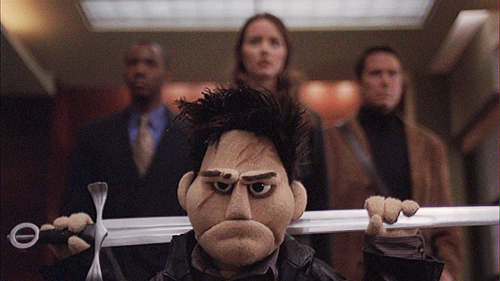
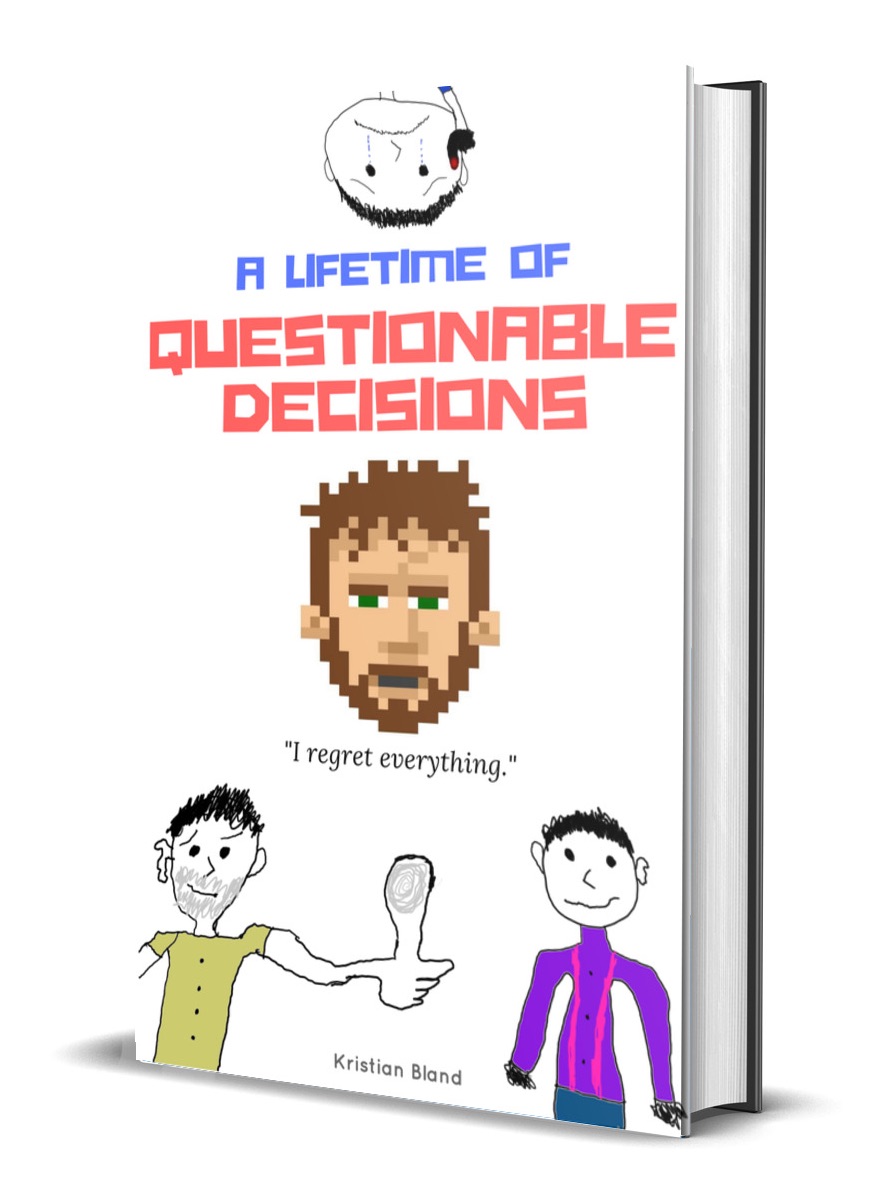




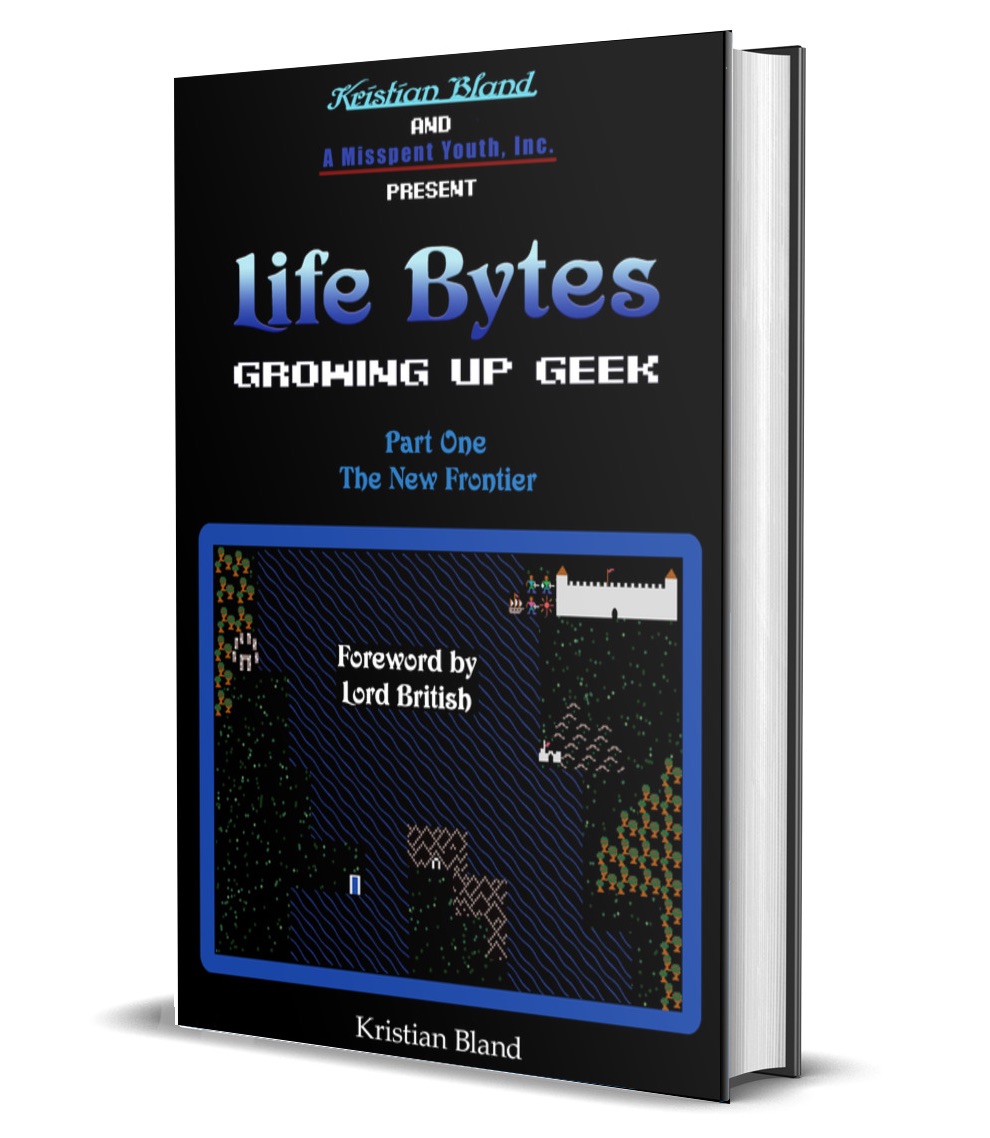
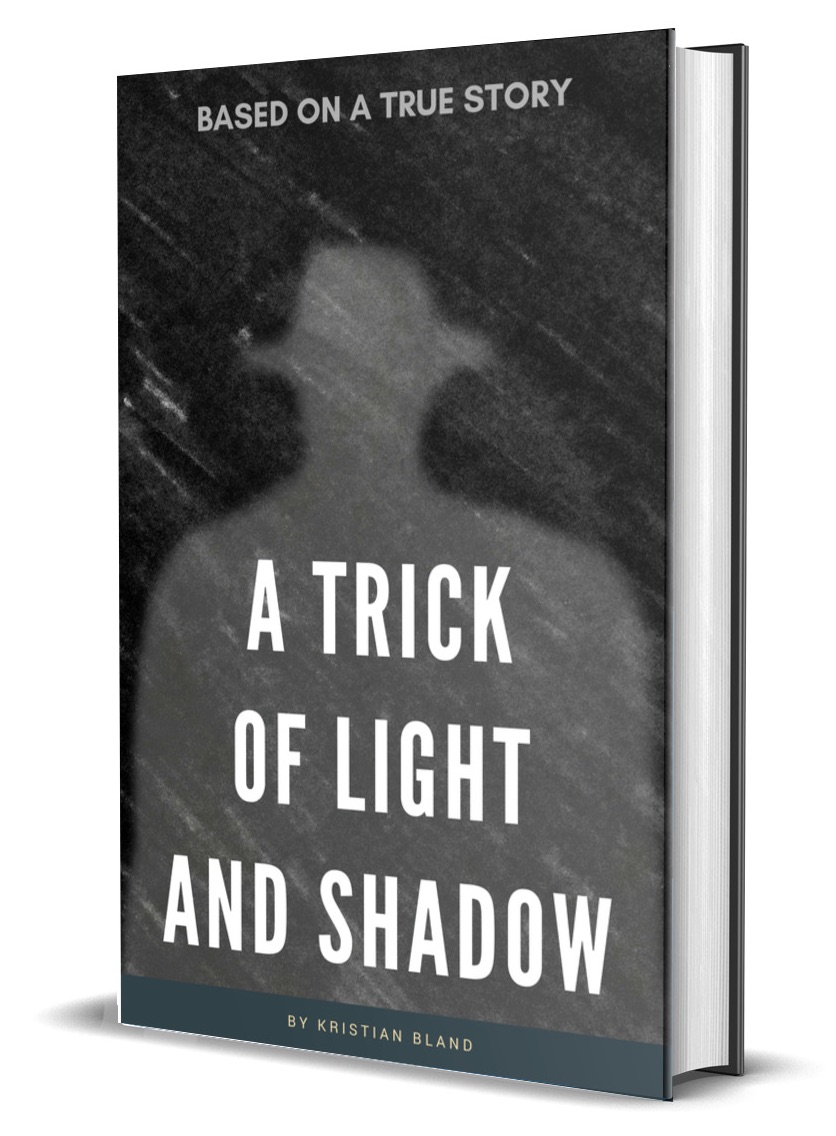
You must be logged in to post a comment.